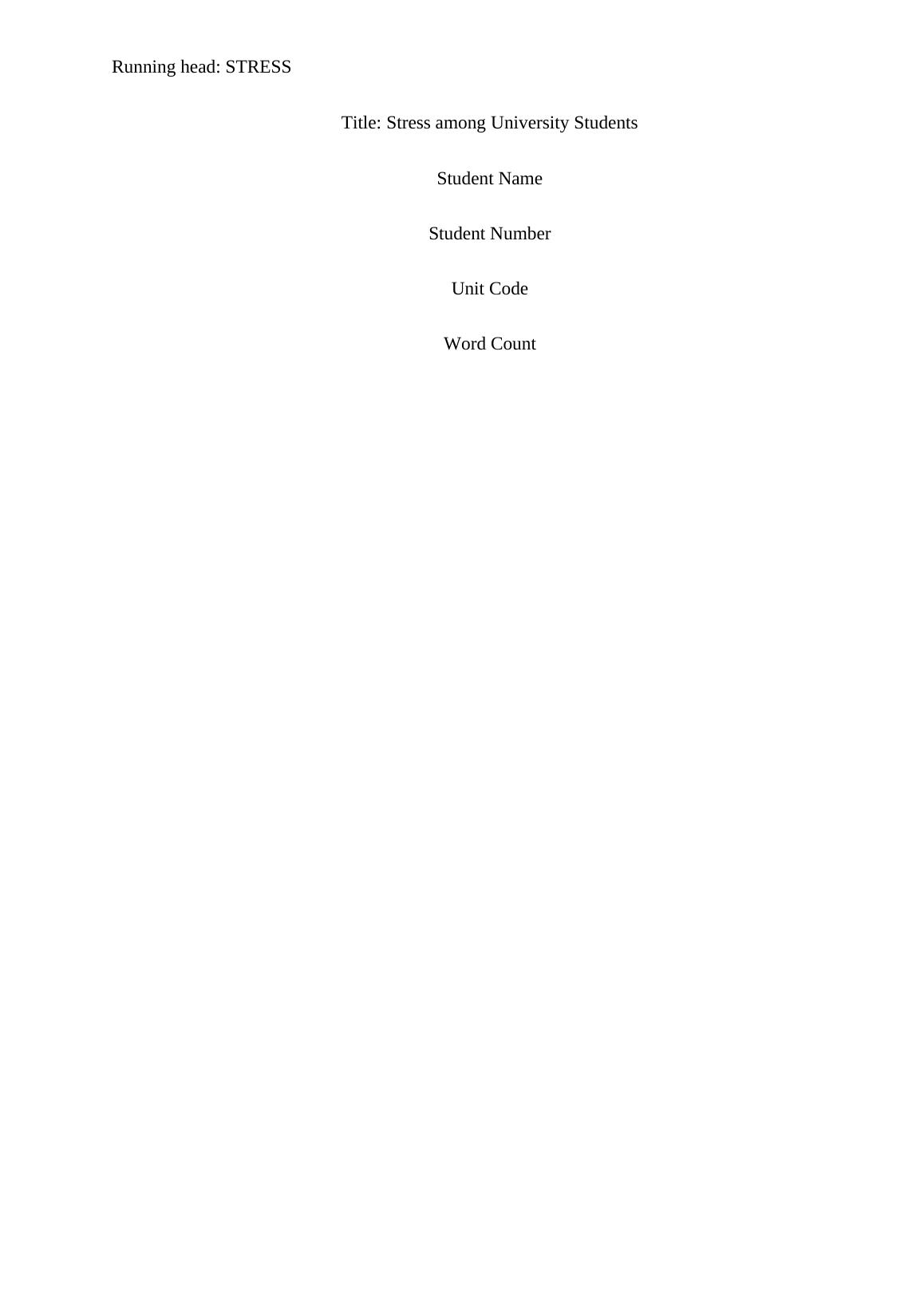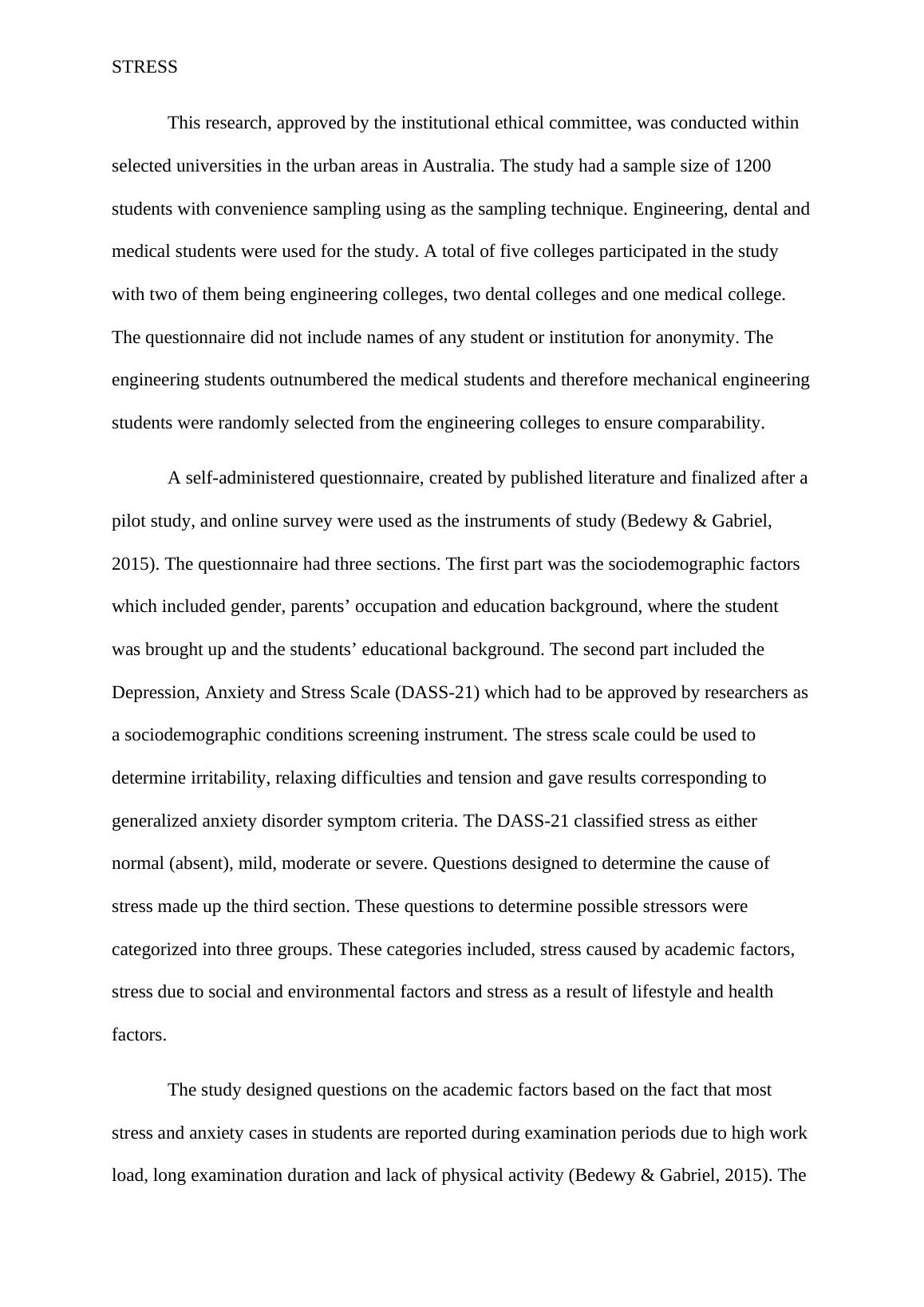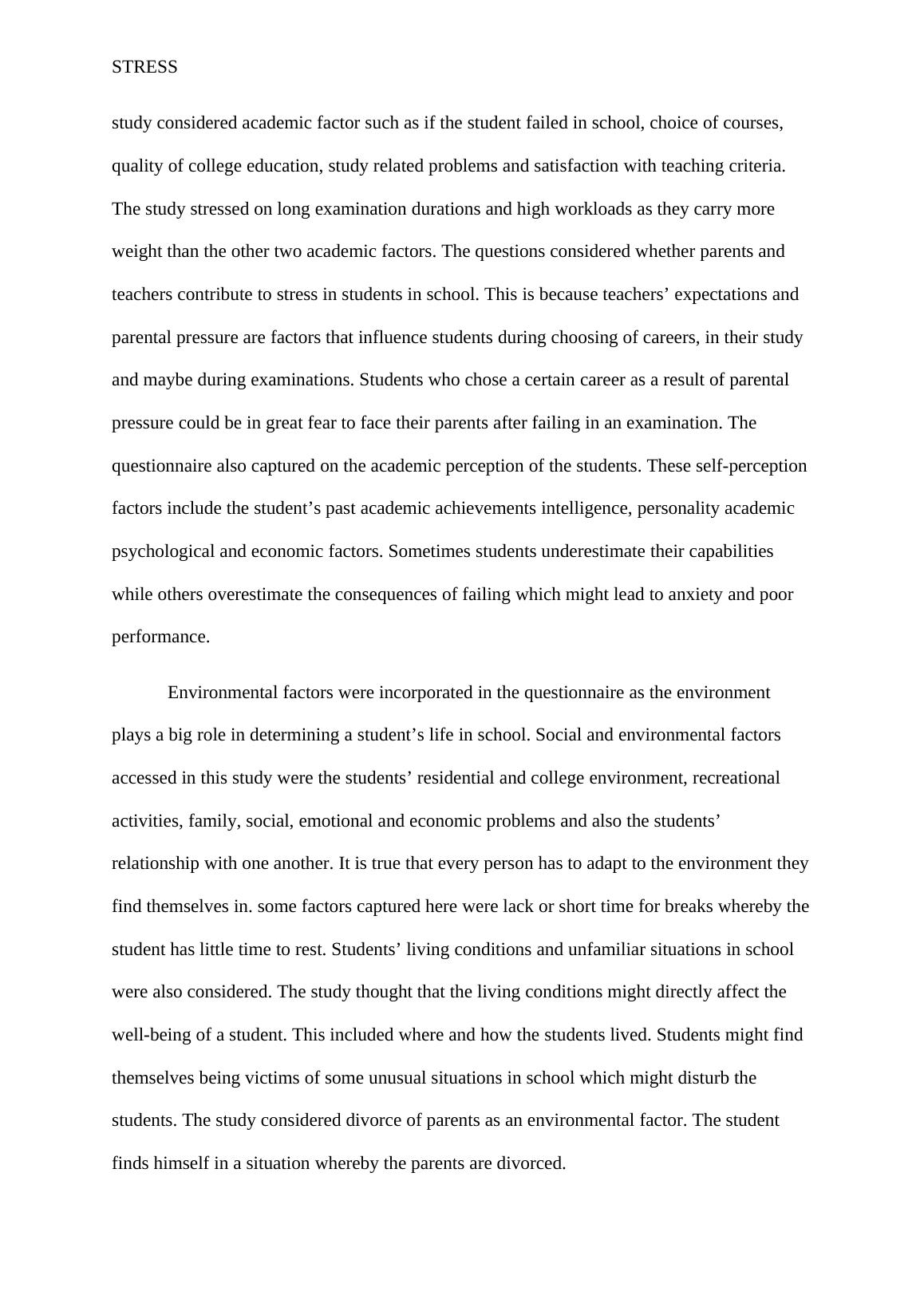Stress among University Students - Desklib
Assessments 2 and 3 are parts of the same project, which is a report of a data analysis using collected survey data. Assessment 2 requires submission of the methods section and at least one table and graph from the results section, while Assessment 3 is the final report incorporating feedback from Assessment 2.
6 Pages1257 Words243 Views
Added on 2023-06-08
About This Document
This research explores the causes of stress among university students in Australia. The study covers academic, social, environmental, and personal factors that contribute to stress. The study used a self-administered questionnaire and online survey as instruments of study.
Stress among University Students - Desklib
Assessments 2 and 3 are parts of the same project, which is a report of a data analysis using collected survey data. Assessment 2 requires submission of the methods section and at least one table and graph from the results section, while Assessment 3 is the final report incorporating feedback from Assessment 2.
Added on 2023-06-08
ShareRelated Documents
End of preview
Want to access all the pages? Upload your documents or become a member.
The Effect of Yoga on Stress, Anxiety, and Depression in Women - Article Summary
|5
|654
|426
Nursing Research: Pinch Table Template and Analysis Paper
|10
|2188
|89
Anxiety Affiliation in Adolescent and Children in Faculty
|22
|4642
|341
Developing Academic Skills (Doc)
|5
|564
|96
COVID-19 Impact on Online Learning
|32
|7419
|544
Study Skills for Higher Education: Challenges, Strategies, and Recommendations
|7
|1926
|44



